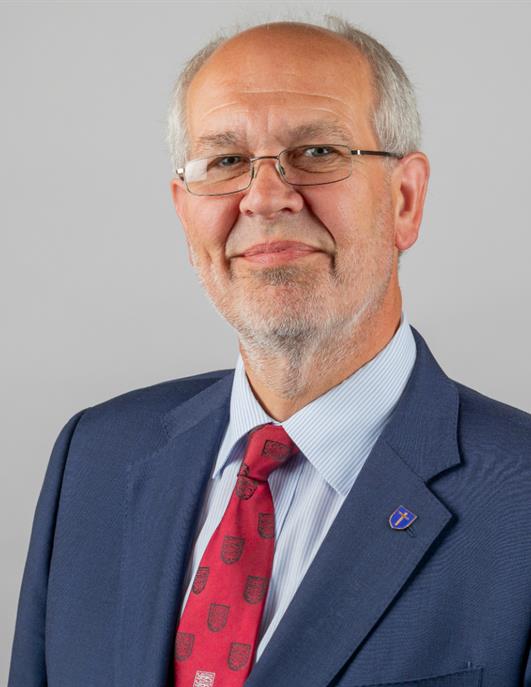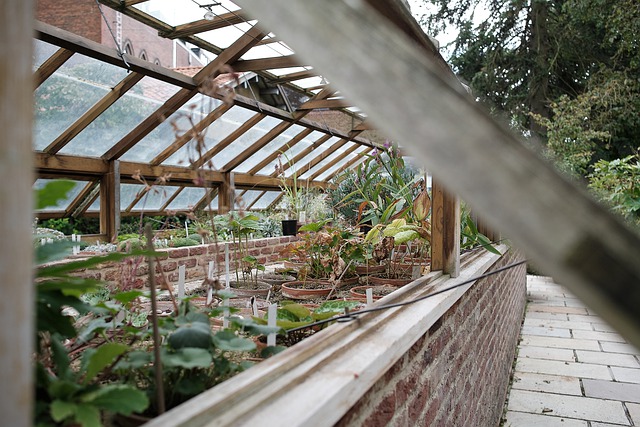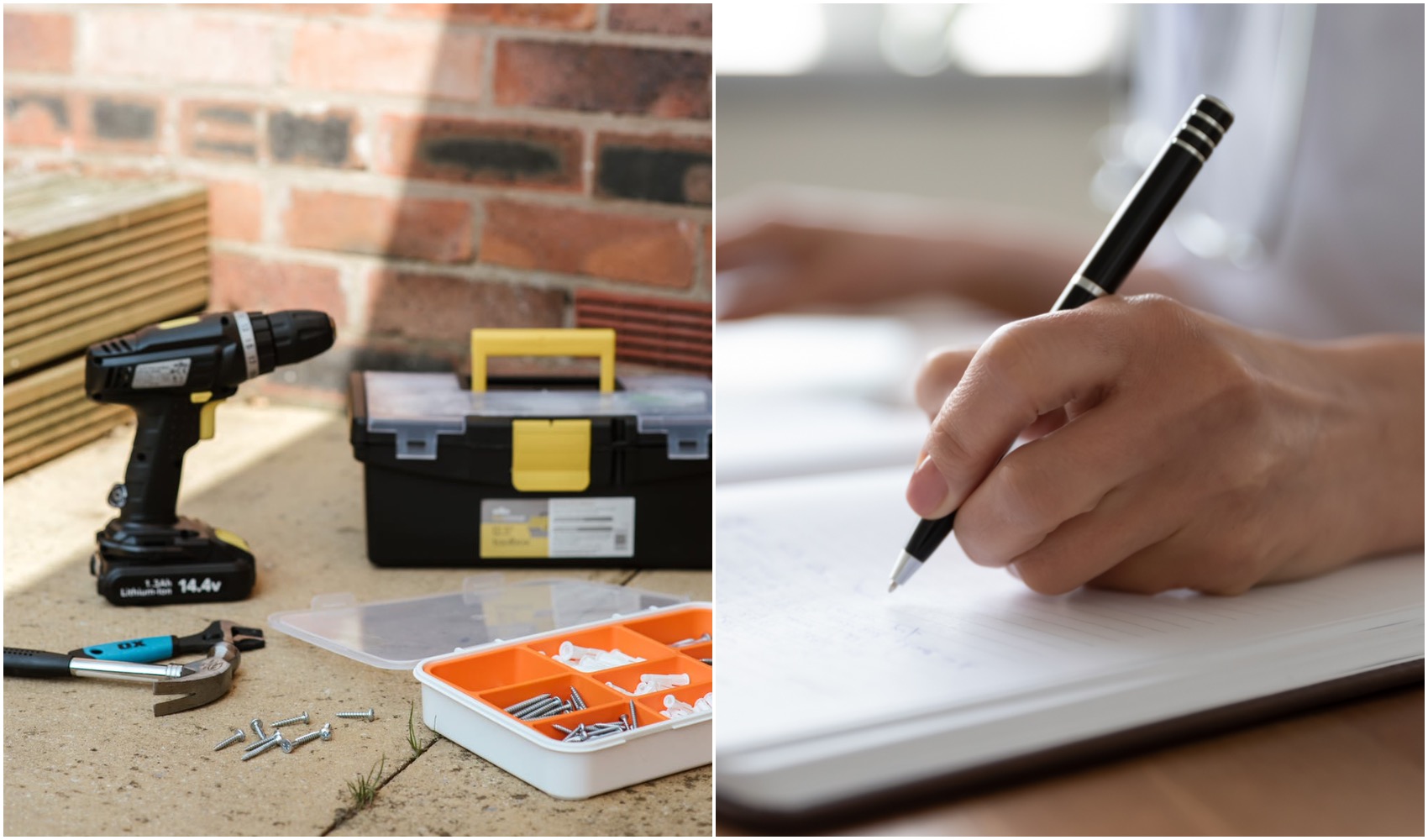


Jersey has a huge opportunity to cash in on the blossoming $600m medicinal cannabis industry... but current "weak" regulation could be putting that opportunity at risk.
From "detailed and specific regulations" to clear Ministerial responsibility, planning rules, and adequate fees, a panel of politicians has made several recommendations to ensure Jersey's burgeoning medicinal cannabis sector can flourish rather than flounder.
The Economic and International Affairs Scrutiny Panel made 24 recommendations after finding out that their concerns over the apparent lack of regulations for the industry had been "justified".
Express takes a closer look at what they think needs to be done...

Pictured: Deputy Richard Renouf is solely responsible for the issue of licences as the JCA’s only authorised member.
Jersey currently does not have its own bespoke set of regulations in place.
Licences to cultivate medicinal cannabis are therefore granted under a Memorandum of Understanding (MoU) with the UK Home Office Drugs and Firearms Licensing Unit and the Health Minister, acting on behalf of the Government of Jersey, who had “very little or no input” into the preparation of the document.
Under the MoU, the Jersey Cannabis Agency (JCA) is the body authorised to grant licences for medicinal cannabis. It is administered by the Chief Pharmacist but the Minister for Health and Social Services, Deputy Richard Renouf, is solely responsible for the issue of licences as the JCA’s only authorised member.
The Panel noted that the JCA’s Guernsey counterpart - the Guernsey Cannabis Agency - is made up of representatives of Environmental Health and Pollution Regulation, the Chief Pharmacist and business support from the Committee for Economic Development, with close support and consultation with Bailiwick Law Enforcement officers.
The Panel said the JCA should include representatives of other Departments as members, including “at a minimum” the Department of Infrastructure, Housing and Environment, Economic Development, and the Chief Pharmacist and with further support from Law enforcement officers.
They recommended the group’s remit be expanded to include both the monitoring function of the industry, as well as compliance with security, quality of production, clear moral conduct of people working in the industry and issuance of trade licences.
They also urged the creation of Jersey’s own “detailed and specific regulations” to bring the island into alignment with other jurisdictions. They said this should be done immediately with a clear timeline set in place with the Legislative Drafting Office.
They shared concerns that, in the absence of standalone regulations, the MoU may not be “robust and stand up to scrutiny”.

Pictured: Applications for licences are sent to the UK Home Office to be reviewed.
There are a number of different licences required for the operation of the medicinal cannabis industry as the activity varies between cultivation, possession, processing and production of products, supply and export.
Under the current arrangement, when an application is made, it is sent to the UK Home Office, which assesses it and requests clarifications if needed.
They then arrange a joint site inspection visit and meeting with the applicants with the Chief Pharmacist to discuss the application and their plans, as well assess their understanding of what is involved in cultivation.
A report is then sent to the Health Minister detailing the Home Office’s observations and whether or not the application would be compliant. The Minister then reviews the report and the application and makes a decision.
It is expected that in the future, a panel would advise the Minster before any final licensing decision is made.
At the time Scrutineers wrote their report, two licences had already been granted. They however raised concerns around the licence application process which they said should be “reviewed and considerably strengthened”.
The Panel noted applicants do not have to provide full details of their business case with financial predictions and recommended that this should become an essential part of the process immediately.

Pictured: According to the panel, the current fees may not be economically viable in the future.
The Panel also raised concerns over the future economic viability of the Jersey licence application fee.
According to information provided by the Economic Development Minister, the initial licence fee to cultivate, produce, possess and supply cannabis is £7,500 with an annual renewal fee set at £3,750.
However, the panel noted that the maximum fee to be paid to the Home Office for their work in the application of licences is £2,500.
They expressed concerns that the current fee might not cover the costs for, not only the licence fee administration, but the ongoing work required from the office of the Chief Pharmacist and recommended the Council of Ministers review it immediately and benchmark it against the “minimum required resource to regulate this industry in Jersey”.
Although the plan is to tax profits on the industry at 20%, the Panel found that returns in the early stages would likely be "minimal".
In other words, would Jersey's government receive a good return on its own investment into the sector?
According to the Panel, several other elements should be reviewed as part of the application process, such as the proposed security framework, the qualifications of the person responsible for the regulatory affairs of the medicinal cannabis business and the procedures for the disposal of the harvested cannabis crop.
The Panel also argued that the “Economic Impact Assessment” (EIA) submitted as part of the application should be made public, allowing islanders to make representations, as is the case for EIA forms submitted with planning applications.
To ensure the island’s reputation is not tarnished, the Panel said those wishing to export medicinal cannabis should obtain the European Union Good Manufacturing Practice (EU GMP) certification, which they described as “the highest recognition available to pharmaceutical companies” as it requires rigorous testing to ensure compliance with strict EU regulations.
The Panel said all medicinal cannabis exported from Jersey should be under the EU GMP certification, as otherwise they fear the island could be viewed as exporting “lower grade medicinal cannabis”, which may tarnish its reputation.
“For Jersey producers looking to export finished products, it is imperative that GMP remains a statutory requirement because a regulatory regime that could be perceived to fall short of EU standard would create the risk of EU importers discriminating against products ‘made in Jersey’,” a current licence holder said.
“As EU GMPs are currently the strictest cannabis manufacturing standards in the world, adherence to EU GMP will provide Jersey producers with unhindered access to global medicinal markets.”
The Panel recommended all medicinal cannabis licence applicants should be required to apply for EU/GMP accreditation prior to receiving a medicinal cannabis licence, with key milestones in place to ensure the process is being followed and the licence holder is taking the relevant steps to achieve this.
“Jersey rightly prides itself on its respected international reputation in all spheres. The importance of the potential damage to such reputation, should the medicinal cannabis industry not be sufficiently regulated, should not be underestimated,” they wrote.

Pictured: Glasshouses currently used for agriculture do not require planning application if they are to be used to cultivate cannabis.
In their report, the Panel highlighted two incidents where unauthorised planning works took place on medicinal cannabis cultivation sites with the subsequent plans submitted retrospectively being described as ‘piecemeal’.
In one case, unauthorised work took place on a site where a planning application had been submitted for an electrical substation for the purposes of producing medicinal cannabis.
In the other, a planning application for a “secure horticultural laboratory” in St. Brelade was approved despite a number of concerns raised by the Planning Committee, particularly over the lack of information about the planned usage and future occupiers of the site.
The Panel said they shared the Planning Committee’s concerns over the possibility that the countryside could become industrialised if future use of sites is not monitored through the Planning process.
According to their research, the rules applied to the medicinal cannabis industry are similar to those currently in place for agriculture. For example, glasshouses currently used for agriculture do not require planning application if they are to be used to cultivate cannabis, which the Panel considers to be inadequate.
Instead, they called for rules to be established to fit this business as they are concerned the current agricultural rules could be used as a “loophole” to cultivate and export cannabis.

Pictured: The Planning Department has so far had “little or no involvement” with the industry.
During their review, the Panel also discovered that the Planning Department had “little or no involvement” with the industry, despite the Chief Pharmacist working on the assumption that they are responsible for ensuring that the structures and buildings are developed in accordance with the plans.
They strongly recommended that the requirements of the Planning process be aligned with the licence application process to ensure “consistency, transparency and fairness”.
They also said the Council of Ministers should ensure that “clearly defined building and development plans” are put in place at licence application stage for the use of utilities such as water and electricity with standalone structures (such as substations, pump houses etc) if required, and that those should be overseen by the Planning Department.
The Panel said officers from the Planning and Environment Department should be the only ones assessing and approving the Environmental Impact Assessments (EIA) submitted as part licence applications.
In addition, they said the documents should be made public and the public and key stakeholders allowed to comment on them before the JCA grants any licence.

Pictured: The current lines of accountability or "muddled" according to the Panel.
The Panel said they found Ministerial responsibility and accountability to be “lacking” throughout the course of their review.
At the outset, they believed the Minister for Economic Development, Tourism, Sport and Culture (EDTSC), Senator Lyndon Farnham, had overall responsibility for the medicinal cannabis industry.
However, they said it soon became apparent it was in fact the Minister for Health and Social Services, Deputy Richard Renouf, who is responsible for issuing the licences as stated above.
Meanwhile, the Minister for EDTSC is only responsible for agricultural and economic related matters, with the Panel noting it was “unclear” whether he had any ‘specific responsibility” in the industry.
The Panel also found collaboration was lacking between Government Departments. “It is clear that more than one Department needs to be involved in the medicinal cannabis industry, and without collaborations there may be a danger of key areas being overlooked,” they wrote.
They made several recommendations to ensure “stronger and more coherent cross-Departmental working” with the Council of Ministers having more input with “clearly defined lines of Ministerial accountability” for this industry, the absence of which they found “alarming”.

Pictured: The Panel called for greater collaboration between Government departments.
“The medicinal cannabis industry cuts across a number of political responsibilities, and the Council of Ministers has not appropriately established an holistic Government approach to the matter which has in turn blurred lines of accountability,” the Panel wrote. “It is therefore difficult to see where the Ministerial responsibility lies.”
In addition to calling for the expansion of the JCA’s remit, the Panel made recommendations for the other groups involved in the industry.
They said the Cannabis Co-ordination Group, which is currently made up of civil servants from various departments, should also include Ministers to avoid key decisions being taken without their “considered input”.
They also recommended the Group be more transparent and publish its minutes on the Government’s website.
As for the Cannabis Trade Body - a Government-backed cannabis trade organisation which the Panel became aware through a press release – the Panel questioned whether it would be independent enough to provide impartial advice to the Government as all members are involved directly in the medicinal cannabis industry.
Although welcoming the formation of some of the groups, the Panel suggested their use might be limited in the absence of “clear lines of communication for each of the groups advising the relevant Minister”.
They called for the immediate creation of a “clearly defined structure chart” showing the layout and responsibility for each of the supporting groups for the medicinal cannabis industry as well as defined reporting lines from each of these groups to the relevant Minister with Terms of Reference setting out clear objectives.
They said they firmly believed there should be one Minister with overall responsibility for the industry with the various groups clearly defined with Terms of Reference and objectives.
According to the Panel, “anecdotal evidence” suggested that parts of Jersey’s community were concerned about the impact the industry could have on the island’s reputation.
They said they believed that local medicinal cannabis cultivation presents a reputational risk to Jersey’s existing core industries.
The Panel's advisers recommended that a reputational risk assessment be carried out, with a “particular focus on whether there is a risk of an adverse effect on the core industries that are significant contributors to Jersey’s economy, such as agriculture and financial services."
"Care should be exercised to ensure that the island’s other core industries are not prejudiced," the advisers added.
While Ministers will respond in depth to the panel's concerns at a later date, Economic Development Minister Senator Lyndon Farnham - who has largely been the 'face' of the Government's bid to create a new industry on the island - had this to say after the report's publication yesterday:
“Scrutiny’s concerns about regulations and Ministerial accountability will be addressed in Government’s formal response to their report, but I would say that the regulatory and legislative controls already in place provide a robust foundation, are in line with international standards, and will evolve as the industry develops.
“This is an important new sector for Jersey, and its benefits include the diversification of our agricultural sector; the development of other high-value businesses, such as the research and development of new cannabinoid medicines; and ultimately the potential for additional revenue for Jersey through taxes and licence fees.
“I would like to thank Scrutiny for the report. We will be carefully considering all of Scrutiny’s findings and recommendations, and will respond formally in due course.”
INSIGHT: Cultivating a medicinal cannabis industry
Comments
Comments on this story express the views of the commentator only, not Bailiwick Publishing. We are unable to guarantee the accuracy of any of those comments.